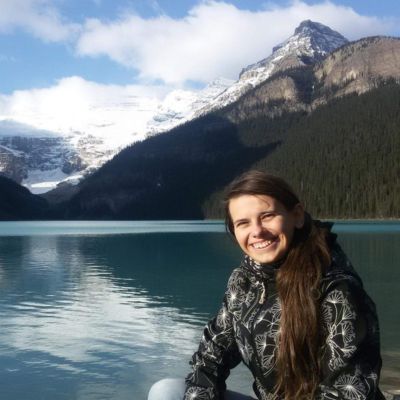Dominika Tabor
Biography
My name is Dominika Tabor, and I was born in southern Poland. I was interested in languages and different cultures from time immemorial. I started learning English in kindergarten; it became my favourite subject at school, and finally, I decided to pursue English Philology as my career. I discovered my passion for teaching while completing my Bachelor of Arts degree. In 2014, I started working as an English as a Foreign Language Instructor. My youngest student was just three years old, and the oldest was almost seventy! During my master's Degree in English Philology, I had an opportunity to participate in two exchange programs: at the University of the Fraser Valley in BC in Canada and at Sapienza Universitá di Roma in Italy. Both programs helped me broaden my cultural horizons and enabled me to meet people from diverse backgrounds and cultures. My journey as a Polish as a Foreign Language Instructor directly resulted from my exchange programs. Having formed meaningful international friendships, my friends wanted me to teach them about Polish culture and give them some lessons in the Polish language. What started as a simple, friendly favour quickly became my second career path. Over the years, I completed several certified teaching courses and trainings. In August 2023, I finished a postgraduate degree in Teaching Polish as a Foreign Language.
Currently, I teach Polish courses at the University of Alberta, and I am finishing my PhD in Transnational and Comparative Literatures in the Department of Modern Languages and Cultural Studies. My research focuses on young adult literature written about migration to Canada.
I love working with people from different backgrounds and hearing their life stories. I truly believe that teaching is what I was meant to do, and I feel proud and privileged to be able to share my knowledge of the Polish language and culture with my students.
What is your favourite thing about teaching?
My favourite thing about teaching is the unpredictability. While I am 100% prepared for every single class I teach, I can never fully predict students' reactions to a new class topic or a grammar structure, the way they interact with each other during group tasks, or simply the culture-related questions they will ask me. Every class is different, and it requires me to adapt my lesson plans quickly, and I love that challenge.
What's the last book you read and loved?
The last book I read recently and loved was When I Was a Work of Art by Eric-Emmanuel Schmitt. It is an excellent social commentary on what defines humanity and art in the modern world.
If you could travel anywhere in the world, where would it be and why?
It's almost impossible to choose just one place. My current "Top three" places to see are the Acropolis of Athens in Greece, Machu Picchu in Peru, and The Great Pyramid of Giza in Egypt. I hope to someday save enough money to be able to see them. For now, after enduring a couple of Canadian winters, I am just dreaming of travelling somewhere warm(er), ideally by the sea.
What three words best describe your experience as a teacher?
Optimism, passion, respect
Optimism- My students always tell me that they really appreciate my optimism and positive energy. It helps them associate learning Polish with something enjoyable and fun.
Passion- I believe that the passion for teaching can be extremely infectious. Once students see how engaged in the topic I am, it is easier for me to ignite the passion for knowledge in students.
Respect- I am a firm believer in mutual respect in a classroom environment. It makes the teaching process and all unexpected life obstacles easier to handle both for the students and for me as an instructor.
What is your favourite word in Polish?
My favourite word in Polish is "książka" [kɕɔ̃ʃka], which means a book. It's a beautiful word for so many different reasons.
As a philologist, it relates to my love of books (philology comes from the Ancient Greek word philología, meaning "love of word").
As a Pole, I enjoy the way it is pronounced and the Polish diacritics it contains.
As an instructor of the Polish language, it reminds me of my POLSH 111 students, who proclaimed it to be one of the most difficult beginner-level words they have ever encountered. They could not believe that the written word could be so different from its pronunciation.
